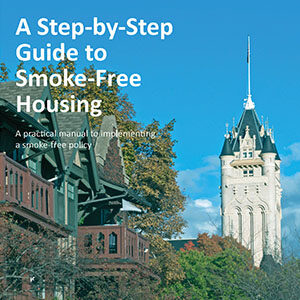
When It Comes to Secondhand Smoke, Clean Air Counts
Among the hustle and bustle of a busy practice, it is understandable that a provider might overlook asking some important questions. When it comes to tobacco, here is a reminder to pose questions to patients specific to environmental factors, specifically, if they are living in a smoke-free environment?
With an estimated 46,000 premature deaths occurring each year among non-smokers due to secondhand smoke exposure, there is no risk-free level for a patient to be exposed to. While Washingtonians are fortunate to be afforded protection through the No Smoking in Public Places law, many people are still exposed to secondhand smoke in their homes.
Health district officials encourage providers to remind patients that children exposed to secondhand smoke are at an increased risk for sudden infant death syndrome, acute respiratory problems, ear infections, more severe asthma, and slowed lung growth[1]. Adults who are exposed to secondhand smoke also experience immediate adverse effects on the cardiovascular system and are at risk of coronary heart disease and lung cancer[2].
The best way for patients to protect themselves from secondhand smoke is to avoid exposure whenever possible. There are no ventilation or air cleaning technologies that can completely control for exposure to secondhand smoke[3]. Providers can also recommend to their patients who smoke to avoid smoking in their homes or vehicles or near children. And all families and caregivers can ensure places where their children visit are smoke-free[4].
When counseling patients who live in rental housing, or multi-unit housing, encourage them to seek out smoke-free housing. Eight in ten rental properties in Spokane County are covered by no-in-unit smoking policies set by the landlord. Seventeen percent of owners/managers took the additional step to ban smoking anywhere on their properties[5]. For those who are renting an apartment that does not have a smoke-free policy, tenants can request that the owner or landlord implement one.
To learn more about how Spokane Regional Health District is working to address tobacco, vaping, and youth marijuana prevention, please call (509)-34-1504 or email pmcgowan@srhd.org.
[1] http://www.cdc.gov/tobacco/abo...
[2] http://www.cdc.gov/tobacco/abo...
[3] http://www.cdc.gov/tobacco/dat...
[4] http://www.cdc.gov/tobacco/abo...
[5] Voluntary Smoking Policies Survey, Spokane Regional Health District; January 2015
